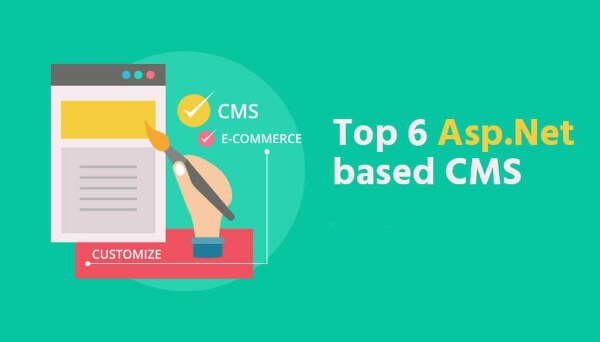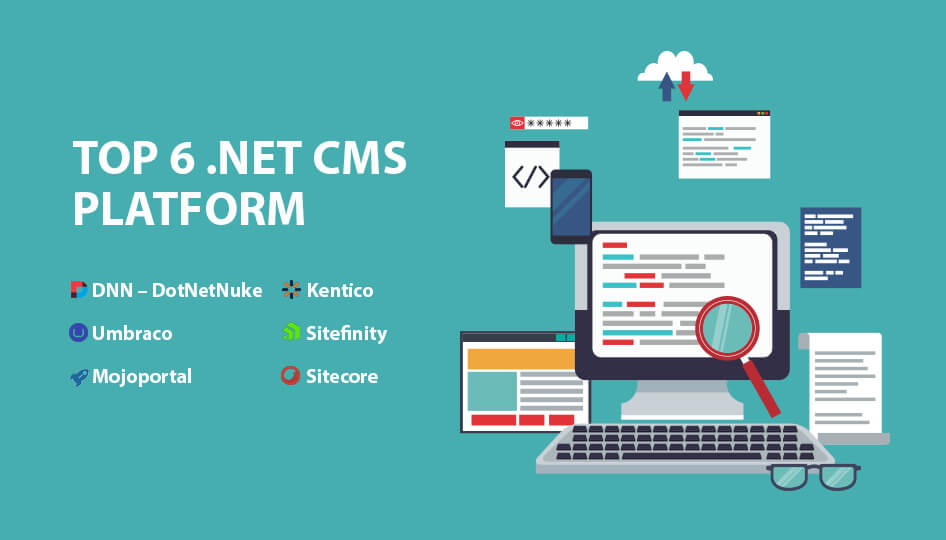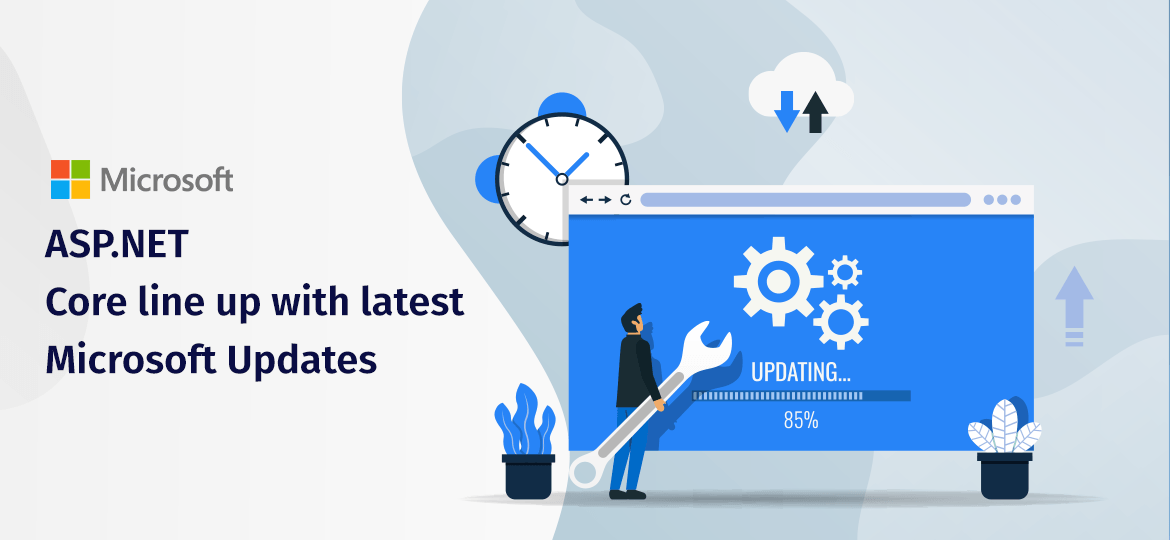
CMS (Content Management System) is a program that publishes, edits, and modifies content from a central interface. First of all, before deciding which Asp.Net CMS to use, you need to understand whether you need a CMS or not. You should have a good reason to use CMS for developing a new website. Planning everything from the start is the best idea. Answer these below questions to yourself to be more specific.
Do you need a website for blogs, articles, news sites, galleries, or an eCommerce store?
- Do you want users to update content regularly?
- Do you need multiple users to update the website?
- Are you looking to control content publishing for the website?
- Can CMS be used by non-technical people who have basic knowledge of Computers?
- Are you looking for a website for SEO and Social Media?
If your answer is YES to the above question, then do you need CRM for developing your website? Now comes the other issue which ASP.Net MVC Development company you can ask for to help you with CMS. Although most CMS works excellent, we need to filter the best alternative from it.
Jump Down:
1. DNN – DotNetNuke
2. Kentico
3. Umbraco
4. Sitefinity
5. Mojoportal
6. Sitecore
1. DNN – DotNetNuke
DNN is a popular and open-source platform that comes with a premium version and a full set of features. DotNetNuke is CMS based on Microsoft.net and used as a DotNetNuke Content Management System and application development framework. The platform is used to create quickly, deploy rich, modular, and highly interactive websites and applications. DNN comes with in-built tools and custom-developed extensions with fully committed backend support.
DNN(DotNetNuke) Highlights:
- Simple and Easy to install
- Have Strong Community
- A large set of themes and plugins
Looking for ASP.Net MVC Development Company to develop open-source CMS, talk to our CMS expert who is ready to work dedicated to your project.
2. Kentico
The second in the list of best CMS comes Kentico, which is used across 100 countries and 25000 websites. The CMS comes with a fantastic set of features for building websites. It mainly supports mobile websites, SEO, marketing automation websites, document management, and other online marketing tools. The multisite management consists of around 70 modules, 400 web parts, and other available source code. The platform can be configured and easily modified according to the client’s needs. Updating the site with Kentico CRM is impulsive, and here the pages are well-organized, which will reflect the site navigation. Users can easily find their page for editing and can easily handle small to large enterprise-level websites.
Kentico Highlights:
- Easy to Install
- Stable and Mature
- Highly Scalable and Flexible
- Strong community
- Options for plugins
3. Umbraco
Umbraco comes with fully-featured open source CMS .Net which gives the flexibility to run anything. This platform helps to run a small campaign or any brochure site through complex applications for fortune 500 along with some largest sites in the world. The platform is very simple and easy to learn, which makes a perfect CMS platform for website designers, developers, and content creators. It comes with customizing and is robust enough to run the largest sites in the world. Umbraco CMS has pure.Net architecture, modern UI, and other active communities, which makes the best choice for web CMS. Moreover, it supports MVC and webforms. The only cons are it takes extra effort while starting because it designs with developers in mind.
Umbraco Highlights:
- Simple and easy to install
- Open API
- Highly flexible and Scalable
- Stable and Mature
- Strong Community
- Great Options for Plugins
4. Sitefinity
Here comes another platform Sitefinity in the list of next-gen web CMS. It is the next-gen Asp content management system that creates intranets, websites, portals, and blogs. It offers simple and easy-to-use online administration for managing the site. The Sitefinity CMS developed by Telerik, it’s a team that provides the best solution and uses .net standards for template management. .Net standards such as Controls and MasterPages are set up at the front end of the site in a straightforward manner.
Sitefinity Highlights:
- Simple and easy to install
- Supports Responsive Design
- Mobile Website Development
- Support and Documentation
5. Mojoportal
Mojoportal is not a well-known CRM but comes with lots of features. It is one of the most extensible and mobile-friendly .net-based CRM. It mainly consists of features such as blogs, forums, contact forms, Google, Calendar, Newspaper, eCommerce, polls, and more. The mojo portal supports MS SQL, MySQL, PostgreSQL, and Firebird SQL. When you want to develop your application, people generally prefer this portal that mainly acts as a starter kit for advanced .Net sites or portals. It is considered an active community to make troubleshooting simple.
MohoPortal Highlights:
- Open Source
- Easy to Install
- Strong Community
- Add-ons
6. Sitecore
Sitecore comes with an enterprise-ready CRM that supports multiple large-scale websites. Moreover, it comes with powerful load-balancing functionality that makes the Sitecore content management system the best to use the platform. It’s a platform that combines customer data and other marketing automation capabilities to nature users throughout the journey. Hire ASP.Net MVC developer to take the first step to success by choosing the Sitecore platform as gives you personalized content in real-time.
SiteCore Highlights:
- Multilingual CMS
- One platform to manage all personalized content
- Central Repository
- Headless Architecture
- Native analysis and machine learning capability
Wrapping Up
Lots of Content Management System has made the life of developer easier where users can effortlessly maintain content on websites. But choosing the right CRM at the start, the project will make the process easier. We are a leading ASP.Net CMS Development Company who can help you plan everything from scratch to a fantastic project. Hire an ASP.Net MVC Developer that best suits your business or startups.
Top 6 ASP.NET based CMS
Do you need a website or E-commerce store?








 Indonesia
Indonesia
 Botswana
Botswana
 USA
USA
 Italy
Italy
 Panama
Panama




 USA
USA UK
UK Saudi Arabia
Saudi Arabia Norway
Norway India
India Australia
Australia